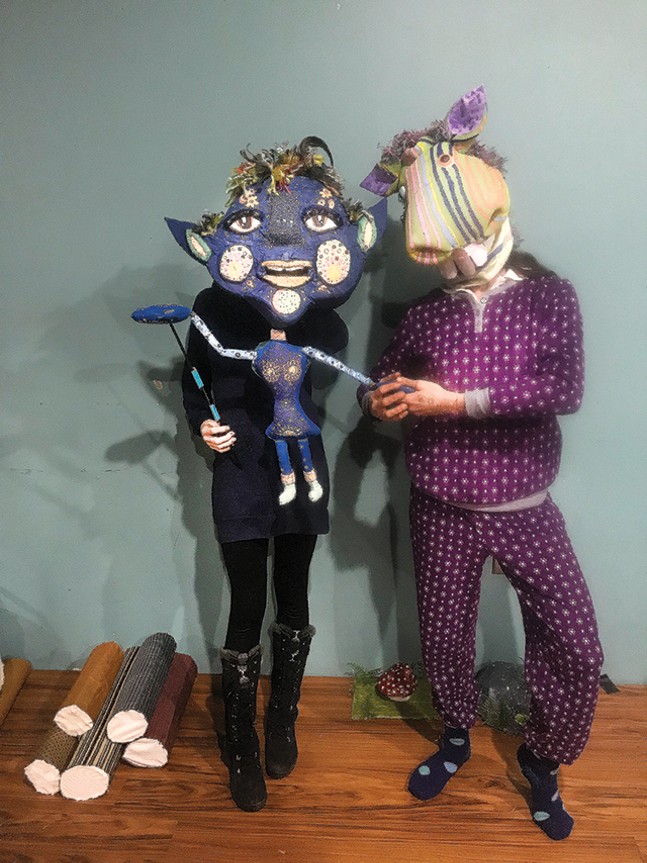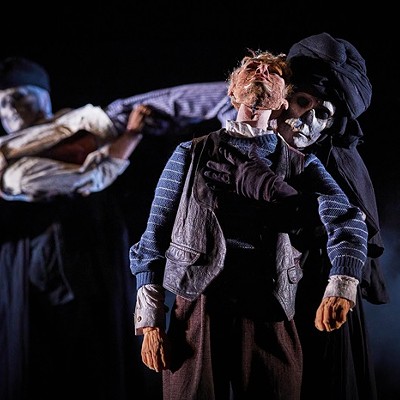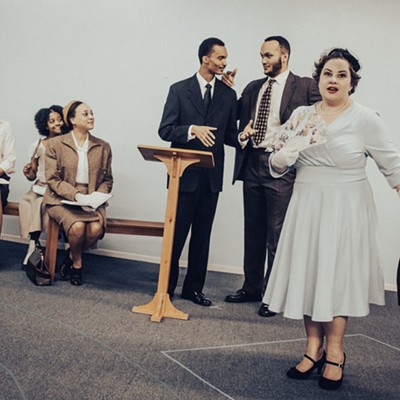Running The Glitter Box Theater has its perks. If not for the Oakland venue, co-owner and playwright Teresa Martuccio might not have a regular place to stage her incredible, DIY musical productions. Where else could she put on her latest original creation, the dark, magical, feminist romp La Strega?
Set in the Dolomites mountain range of northern Italy, La Strega — which opens on Nov. 30 — follows a witch who lives in the woods with a variety of strange creatures. “A lot of the characters are not human,” says
“Because we don’t have a budget, I would always [rehearse] in my house or in a park, then we would get into rental space the day before the show,” says
La Strega adds to the many imaginative productions from Martuccio, whose previous works include Amelia: The Musical, a revisionist take about how Amelia Earhart faked her death to live as an openly gay woman, and The Soiled Dove, a work based on the true story of Jennie Rogers, a Pittsburgh woman who became a legendary Wild West brothel owner in the late 1800s.
She also wrote Meow!, a musical inspired by the extended disappearance of her own cat (don’t worry – the cat returned after 17 days).
“It was about the stages of grieving,” says
Though the subject matter varies wildly, Martuccio’s shows share a few commonalities: They satisfy her obsession with history and her desire to write for women and queer
“People who see [my shows] will reach out and say, ‘hey if you do a play again I want to be in it,’” says Martuccio.
For La Strega, Martuccio wanted to write about the European witch trials and pay tribute to Italy’s Dolomites region, where her mother’s family originates. In keeping with the setting, the music, written in collaboration with Jeremy Mikush, takes from the style of Baroque and Italian folk.
Martuccio also drew inspiration from The Night Battles: Witchcraft and Agrarian Cults in the Sixteenth and Seventeenth Centuries, a nonfiction book about the
She also cites the election of Donald Trump as motivation for writing the musical, as his misogynistic behavior and
Even so, Martuccio wanted the show to transcend its bleak origins.
“I realized that it didn’t have the most hopeful ending, because I wasn’t feeling that hopeful,” says Martuccio. “And then I was like, ‘we need hope.’”
Though the musical was inspired by events that happened centuries ago, she hopes highlighting that
“The fact that we do it without money, maybe someone will see it and think, ‘Oh my gosh, I have this story that I want to write,’” she says.















